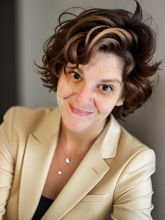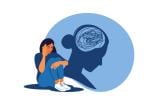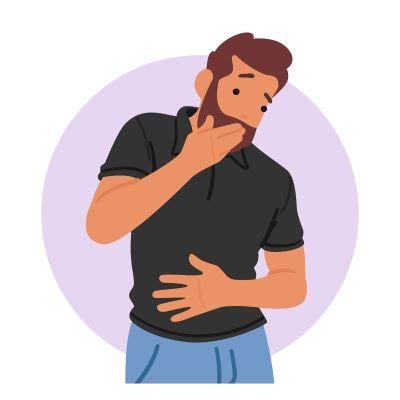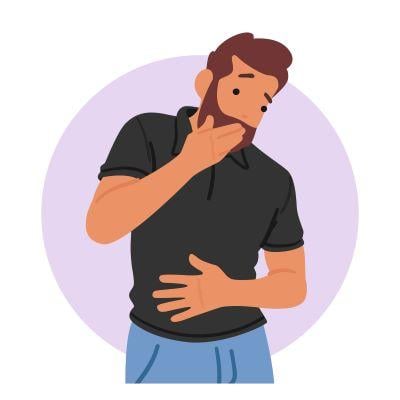Don’t Wait 17 Years: Get Help for OCD
Don’t Wait 17 Years: Get Help for OCD

Folks with OCD see 14-17 years, on average, between OCD symptoms appearing and getting a correct diagnosis. Here are four steps as a guide to better outcomes.
Step 1 - “My room is messy. Could this still be OCD?”
You may have chuckled over the rack of “Obsessive Christmas Disorder (OCD)” sweatshirts on sale this past holiday season. Sadly, jokes like this make light of a painful disorder and contribute to widespread misconceptions about OCD. Popular media also perpetuate OCD misinformation. The germ-phobic TV detective “Monk” is a stereotype. In fact, a minority of folks with OCD are concerned about germs or cleanliness. OCD is unwanted and distressing obsessional thoughts/images/impulses. For people with OCD, compulsions (e.g., avoidance, rumination, checking, reassurance-seeking, cleaning) reduce distress or prevent something bad from happening. Common but less well-known themes of OCD include but are not limited to: harm (“I could lose control and murder my partner”), pedophilia (“What if I could molest my niece?”), false memory (“Maybe I was charged with a DUI in the past and don’t remember?”), hit-and-run (“What if I hit someone while I was driving earlier?”), and metaphysical/existential (“Maybe I’m in a computer simulation””).
To learn more, see:
- Anxiety and Depression Association of America
- International OCD Foundation
Step 2 – “I am so ashamed. How could I talk to anyone about this?”
Folks with OCD often fear they are immoral, sinful, dangerous, or evil. Put yourself in the slippers of a new mom who dreamed of being a parent her entire life. Yet now she faces recurrent images of herself strangling her baby. Violent thoughts conflict with her values or ideal self-image. Mental health professionals label these undesirable thoughts as “egodystonic.” OCD-related thoughts are typically the worst thing the person with OCD can imagine. Yet, OCD tricks sufferers into thinking these beliefs will come true unless they perform their compulsions. This experience can trigger intense shame, which prevents folks from reaching out for help.
Shame and treatment avoidance may be intensified for people of color and/or queer folks. Caring individuals with harm-based or sexually related OCD may fear that mental health providers will reflexively see them through the lens of racial/queer stereotypes and view the person as dangerous or sexually deviant rather than taking the time to understand the egodystonic nature of the OCD. For instance, a gay, African American lawyer’s OCD may cause him to fear that he is a pedophile or murderer. He avoids seeking help because he fears his symptoms will be misinterpreted as a threat.
An intermediate step to help prepare someone for contacting an OCD specialist is connecting with others with lived experience. Learning that you are not alone and that there is a name for what you or a loved one is experiencing can decrease shame and increase hope. Small but strong representation of queer, black, and brown folks grows in the OCD online community.
See:
- Podcasts from OCD specialists and/or those with lived experience
- Social media influencers with lived experience share real stories.
Step 3 – “I’m ready to talk. Is this treatable?”
Yes, OCD is treatable with evidence-based therapies. The optimal duration and intensity of therapy depends on symptom severity, the presence of additional mental health issues (e.g., depression, substance abuse), and other factors. For many, a few months of weekly, 1-hour sessions should provide significant relief and hope. Here are proven treatments:
- Exposure Response Prevention (ERP)—often paired with Acceptance and Commitment Therapy (ACT)
- ERP emphasizes changing behavior with actions “to face your fears.” ERP activates obsessional thinking and negative emotions then prevents compulsive responses to break the OCD cycle. ACT prioritizes one’s values in goal setting and treatment planning. It teaches mindfulness and other skills that change one’s relationship with difficult thoughts and feelings.
- Inference-based Cognitive Behavioral Therapy (I-CBT)
- I-CBT is an evidence-based, 12-module program that incorporates psychoeducation and exercises in thinking and narrative to demystify the obsessional doubts that occur at the front end of the OCD process. A goal is to stop the OCD sequence by gaining insight into the reasoning errors that spark OCD.
Autistic folks and others under the neurodivergent umbrella may be particularly hesitant to participate in a behavioral-based treatment for OCD. There are OCD specialists with expertise in selecting and adapting evidence-based treatment approaches to meet individual needs.
Step 4 – “How do I know if a therapist has the right training?”
For a proper diagnosis and treatment, rely on an OCD specialist. An OCD specialist is a licensed mental health provider with training in ERP and/or I-CBT whose clinical work has an emphasis on working with clients with OCD. Most mental health providers are not OCD specialists, so finding someone in your geographical area may be challenging. However, virtual options are increasingly available. Research suggests that online therapy is as effective as in-person.
There are strategies for finding OCD specialists who respect you and affirm your individual experience and identity. Many therapists are gaining experience in working with diverse populations and life experiences.
See:
- OCD specialists (ERP, ACT, I-CBT) - https://findyourtherapist.adaa.org
- OCD specialists – https://iocdf.org/providers/
- Inference-based CBT providers - https://icbt.online/find-treatment
- Use reliable sources to locate properly trained providers of evidence-based OCD treatments. Ask potential providers about the therapies they offer. Ask them to describe their training, experience, and process.
Look for direct statements on provider’s websites about identity issues that are important to you (e.g., LGBTQ+ affirming, neurodivergent affirming, anti-racism, cultural humility).
This post is presented in collaboration with ADAA's OCD and Related Disorders SIG. Learn more about the SIG.




















